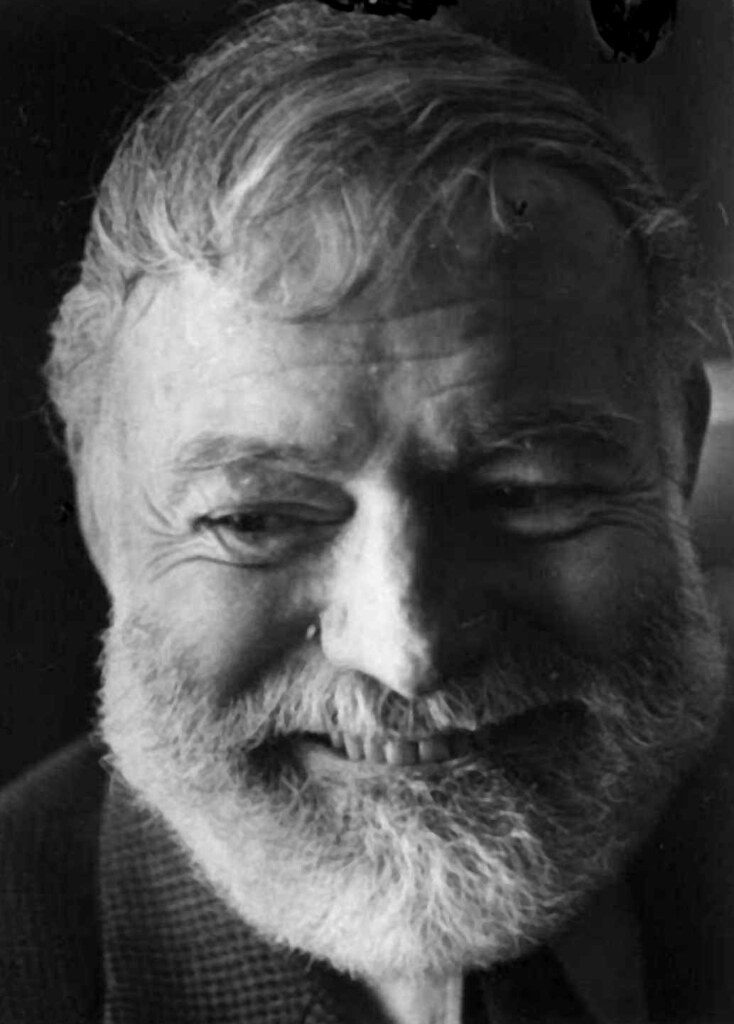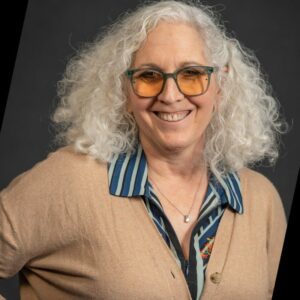Table of Contents:
- Myth: No one really reads the college admissions essays
- Myth: An application essay has to be written about an impressive topic
- Myth: Your college entrance essay should sound sophisticated, like Hemingway or a college professor
- Myth: There is a right way and a wrong way to write a college admissions essay
- Myth: Only superstar students impress admission officers with their essays
Whether you are just getting started on your Common Application personal statement, or crunching to get it done, there’s no reason to get all worked up about the college admissions essay.
During this stressful time in your life when you are applying to college, please remember to breathe and trust yourself, so you can write your college application essays with ease.
You’ve done all you can to up to this point to get the best grades you can, take challenging classes and (if relevant) get good tests scores. There’s only one thing left you can do to stand out: nail that college essay.
“The essay, in my experience, definitely matters in an admission committee’s overall consideration of a student’s admissibility to an institution,” says Stefanie Niles, Ohio Wesleyan University, Vice President for Enrollment and Communications. “I want to be sure that students address the question asked of them in a way that gives me insight into who they are. I believe that a student should write about what is important and meaningful to them, and that feeling will shine through their essay.”

The college application essay IS value-added. Look at each essay you are asked to write as part of your admissions experience as an opportunity. It’s extra credit.
Admissions officers tell us that at a moderately selective school, where the majority of applicants receive offers of admission, the essay can pull a student on the cusp up. At a highly selective school, however, where more students hear no than yes, a personal statement that is poorly done (does not answer the prompt, focus on something meaningful or show insight), can sometimes make the difference between being offered a spot at that school — or not.
Gregory Sneed, Denison University, Vice President for Enrollment Management, shares his thoughts: “Even after reviewing a mediocre transcript or seeing a limited activities list, I can be swayed to admit a student who writes an essay that really blows me away. The topic of the essay doesn’t need to be mind-blowing (in fact, the most mundane topics are often the most relatable and enjoyable), but if it reveals a someone who would be highly valued in our campus community, that could tip the scales.”
What can you do to get noticed?
“Be your most authentic self,” says John Ambrose, Michigan State University’s Executive Director of Admissions. “Students put a lot of effort into trying to convince admissions officers who they think we want to see. Authenticity is always appreciated.”
Related: Hear John Ambrose discuss college admissions and the essay. Link to free class with John as special guest.
Consider these college essay myths and facts before you get started on any college admissions essay.
Myth: No one really reads your college admissions essay
Fact: Of course admission officers read your essays!
They wouldn’t ask you to write something they didn’t plan to read.
Admissions professionals want to read your story, the one you feel is important to share with them. It’s your story. Your voice. Your words. What they don’t want is to read a story about something you think they want to hear.
A few years ago, at the National Association for College Admission Counseling’s annual conference in Indianapolis, we polled about two dozen admission representative to find out if they really read the essays. The collective answer was yes!

“We read each writing opportunity,” according to Erica Sanders, the Director of Undergraduate Admissions at the University of Michigan – Ann Arbor. “We want to put it in context with what we see academically. We want it to be specific, different, something we can’t find elsewhere on your application.
“We don’t have the ability to interview students,” Sanders added. “We want to hear their voice. As I am reading at 11, 12 or even 1 a.m., I want to read something that stands out, something that says, ‘Wow, this is a student I want to meet.’ “
Related:
Myth: An application essay has to be written about an impressive topic
Fact: You are impressive, not the topic
The admission essay subject is you; the topic is secondary. This essay is your opportunity to share something meaningful about yourself. Colleges want to know what you learned, not what you did.
One student started her admission essay confident that discussing a volunteer trip to Central America to teach poor children how to read would surely capture someone’s attention inside the admission office.
Nope!
While brainstorming ideas, the girl talked about what she did in Central America, not what the experience meant to hear. BUT something meaningful came out of the brainstorm process: While this student went on the trip hoping her volunteer work would impress someone, her most important personal moment occurred when she was hanging out with friends during that trip. She was AFRAID OF HEIGHTS, and her friends wanted to go cliff diving.
Our student decided to give it a try. And it was S-C-A-R-Y! But she faced that fear by jumping off a 30-foot cliff into the water. That experience would have been meaningful whether it had happened during that particular service trip or on a family vacation.
The girl’s story, focused on the instant when she decided to jump, was powerful and reflective. In the essay, she showcased the traits that she wanted to share with colleges, the things they might otherwise never know. Would she do it again? Maybe, but maybe not. But that’s not the point. This story was not huge, but it does not need to be. It showed how one student deals with things that scare her. She is determined and brave.
“The essay does not have to be about something huge, some life-changing event,” says Calvin Wise, the Director of Recruitment at Johns Hopkins University. “You can write about an ‘a-ha’ moment, what defines you as a person. But it doesn’t have to be really extensive. Students think they need a monumental experience, but the essay can be about something small.
“What does it mean to you?” Wise asks. “That is what we want to know.”
Myth: Your college entrance essay should sound sophisticated, like Hemingway or a college professor

Fact: Admission officers do not expect you to sound like a professional writer.
The college application essay is your story, and it should be written using your words and in your voice. You are a high school senior, and you should sound like one—not your mom, not your dad, not your English teacher, and certainly not one of the most revered writers of all time!
“I wish I saw more of a thoughtful voice of a 17-year-old,” says Duke University’s Dean of Undergraduate Admissions Christoph Guttentag. “By the time the applications)come to us, many of them have gone through so many hands that the essays are sanitized.”
Myth: Admission officers can’t tell if a parent, tutor, teacher, or college coach has “helped” a student with an essay—and they won’t know if you plagiarized either
Fact: Oh, yes they can…and there’s a fine line between getting help and letting someone write part or all of your essay
While parents and others can’t always tell the difference, admission officers know when someone other than the student writes a story. And they don’t like it.
If a student has an adult write it, the admission committee can tell. They read and recognize patterns, voices. They know what types of grades you get in English. They know when big words don’t fit the style.
We can tell, too.
According to The Harvard Crimson, if plagiarism is detected, the admission committee at Harvard will contact the student and give them an opportunity to explain—some instances are unintentional, after all. But “if the student’s response does not suffice, the application is rejected.” (Some colleges won’t give you the chance to explain at all.)
The Crimson also reports that unfortunately, purchasing essays from private writing services often goes undetected, but this form of cheating is also deeply discouraged. Bottom line: you are the only person who should be writing your college application essay.
Myth: There is a right way and a wrong way to write a college admissions essay
Fact: Your best story will grow out of the process of writing your college application essay
There are no tricks or shortcuts to writing the “perfect” college application essay. You just need to trust the process. Trust yourself.
The college essay doesn’t need to be so daunting. That doesn’t mean it will be easy, but it can be a little less stressful if you allow it to emerge from a process of discovery that includes parsing the prompt, brainstorming for ideas, free writing, revision, review and proofreading.
Just keep reminding yourself: there is no magic formula to help you ace this assignment. To stand out, tell a genuine story about yourself using your words and your voice, and show some reflection.
Myth: Only superstar students impress admission officers with their essays
Fact: Anyone can stand out with a great story! And by great, we mean “effective”
You don’t have to rescue a child from a house fire, get a million downloads for an app you developed, shadow a doctor who performs a quadruple bypass surgery or train seeing-eye dogs to impress admission officers. YOU are IMPRESSIVE just as you are.
One of our students focused his college admissions essay on the time he memorized the general intestinal track to ace his anatomy final; he showed admissions officers determination and hard work ethics. Another student shared insight and maturity in a story about calming her anxious mind. She anchored her story inside a community garden, where she discovered her love of nature by pulling weeds. And there’s the boy who focused on the time he forgot his cello for an orchestra concert and improvised his performance with a bass guitar. His problem-solving skills impressed admission officers, and one college sent him an offer of admission that praised his essay.
“Students do not need to compile an entire season into an essay. Just give us one place, one time, one moment, and that will do it for you,” explains Lorenzo Gamboa, Director of Diversity, Inclusion and Outreach at Santa Clara University. “The key is to show genuine passion, commitment and that they have what it takes to survive at the school.”
The takeaway: Move away from the English paper formula and write a first-person story that draws the reader in.
“There’s a misconception about what we do inside the admissions office,” adds Wise of Johns Hopkins. “We are trying to predict future potential. We need to dig deeper where the essay comes into play. That’s where we find out more about the student. The essay is a student’s opportunity to speak directly to the admissions office, and we want to hear a 17-year-old’s voice.”
How do you do that? Be personal. Be reflective.
Find even more application essay tips in our book we wrote just for you, How to Write an Effective College Application Essay, the Inside Scoop for Students.
Christina Lopez, Barnard College, Dean of Admissions “The whole application process is one big “Match.com” process. The students are creating their ‘profile’ within their application and reflecting in the essays on who they are as scholars and people.” Shawn Felton, Cornell University, Director of Undergraduate Admissions “Answer the question. Since so many students don’t do that, you could actually stand out by doing that very basic thing. We are creating a class. We look at numbers, grades and test scores. But there’s more to it. We are trying to put a face with all of this information.
Tags: college admissions essay, college entrance essay, college application essay


